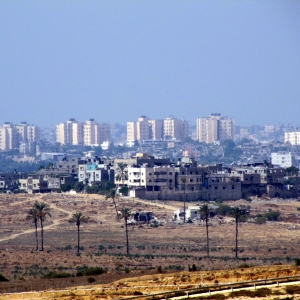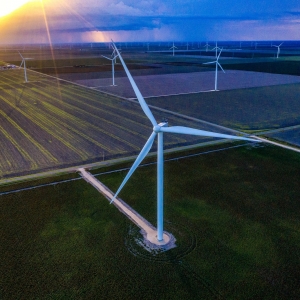Federal Water Tap, August 31: CDC Sets Up National Sewage Surveillance for New Coronavirus
The Rundown
CDC arranges a hub for wastewater monitoring for the pandemic response. A USGS study finds urbanization around San Antonio is polluting the Edwards Aquifer. Senate Democrats release a report on climate change and the economy. The USDA issues a final rule for mapping wetlands on farmland, while the EPA extends the deadline for coal-fired power plants to close unlined waste pits. The GAO says it will investigate whether the White House pressured the EPA to target San Francisco for sewer system violations. And lastly, the EPA coordinates a Hurricane Laura emergency response with Louisiana and Texas.
“We’re living off of yesterday’s investments. And yet we need tomorrow’s infrastructure.” — Rep. John Garamendi (D-CA), speaking on a webinar marking the release of a report on investing in the nation’s water systems. Garamendi added that Congress should take advantage of low interest rates. “We need to borrow that money. We need to put that money into infrastructure.”
By the Numbers
76: Superfund sites in Louisiana and Texas that underwent a damage assessment after Hurricane Laura. Seventy-one did not require additional review, but two in Louisiana and three in Texas will receive a closer look. (EPA)
News Briefs
Sewage Surveillance for Coronavirus
The Centers for Disease Control and Prevention is launching a national network to monitor sewage for traces of the new coronavirus.
The goal of such a network is to act as an early-warning system: to catch the emergence of the virus in a community before it shows up in medical tests. Infected people shed virus particles in their feces.
Republicans on the House Energy and Commerce Committee spoke favorably of a national system. “This type of surveillance tool could prove critical not only for communities as a whole, but also for specific locations, including those with individuals who are at high-risk of developing severe disease, such as hospitals or nursing homes,” committee members wrote in a letter to Robert Redfield, the CDC director.
In context: Enthusiasm But Obstacles in Using Sewage to Monitor Coronavirus
Mapping Wetlands on Farmland
The U.S. Department of Agriculture finalized a rule that revises the process for mapping wetlands and erodible lands on farms. Using accepted conservation practices on these lands is necessary to be eligible for federal programs that provide financial support to farmers.
Coal Ash Disposal
The EPA officially extended the deadline for closing unlined coal ash pits.
Unlined pits must stop receiving waste by April 2021, a six-month extension. Pits less than 40 acres must close by October 2023. Larger pits have until 2028 to find an alternative disposal site.
The agency says the move is in part due to a 2018 court decision that expanded the number of facilities that will be required to shut down their waste dumps.
Studies and Reports
Groundwater Pollution in Texas
Population growth and conversion of land into housing tracts, shopping centers, and lawns in the counties around San Antonio is degrading the Edwards Aquifer, the city’s main drinking water source, according to a U.S. Geological Survey report.
The study is based on tests of surface water and groundwater for a roster of contaminants, including nitrate and salts. But it was the presence of pesticides that was the “clearest indication” that urbanization is polluting the aquifer.
The Edwards, a limestone aquifer, is sensitive to substances that run off of hard surfaces. The study was based on two years of monitoring that included dry and wet periods. The authors caution that it is not just urban stormwater that is to blame — there could be mixing from other aquifers — and that a single study is not the final word on the topic.
In context: Water, Texas
Senate Democrats on Climate Change
Senate Democrats released a 263-page report on climate and the economy, arguing that any federal investment must be centered on the principles of resiliency, environmental justice, and job creation.
The report notes that electric power infrastructure is vulnerable to water shortages; that droughts and floods cause substantial economic losses; that green infrastructure can be a cost-effective option for urban cooling, water filtration, and flood buffering.
On the Radar
GAO Takes Up San Francisco Investigation
The Government Accountability Office, a watchdog that works at the behest of Congress, will investigate whether the Trump administration “singled out” San Francisco for sewer system violations.
In a September 26, 2019 letter, Andrew Wheeler, the head of the EPA, wrote to Gov. Gavin Newsom, calling out “significant deficiencies” with the state’s oversight of water and sewer systems. Regarding San Francisco, the letter called attention to public defecation by residents experiencing homelessness and sewer overflows into San Francisco Bay.
The GAO investigation was requested by California’s Democratic senators, Dianne Feinstein and Kamala Harris.
Mississippi Lawsuit
The federal government is suing the city of Hattiesburg, Mississippi, over alleged violations of the Clean Water Act, the Associated Press reports.
The lawsuit claims hundreds of instances of untreated sewage released into waterways since 2007.
Federal Water Tap is a weekly digest spotting trends in U.S. government water policy. To get more water news, follow Circle of Blue on Twitter and sign up for our newsletter.
Brett writes about agriculture, energy, infrastructure, and the politics and economics of water in the United States. He also writes the Federal Water Tap, Circle of Blue’s weekly digest of U.S. government water news. He is the winner of two Society of Environmental Journalists reporting awards, one of the top honors in American environmental journalism: first place for explanatory reporting for a series on septic system pollution in the United States(2016) and third place for beat reporting in a small market (2014). He received the Sierra Club’s Distinguished Service Award in 2018. Brett lives in Seattle, where he hikes the mountains and bakes pies. Contact Brett Walton






Leave a Reply
Want to join the discussion?Feel free to contribute!